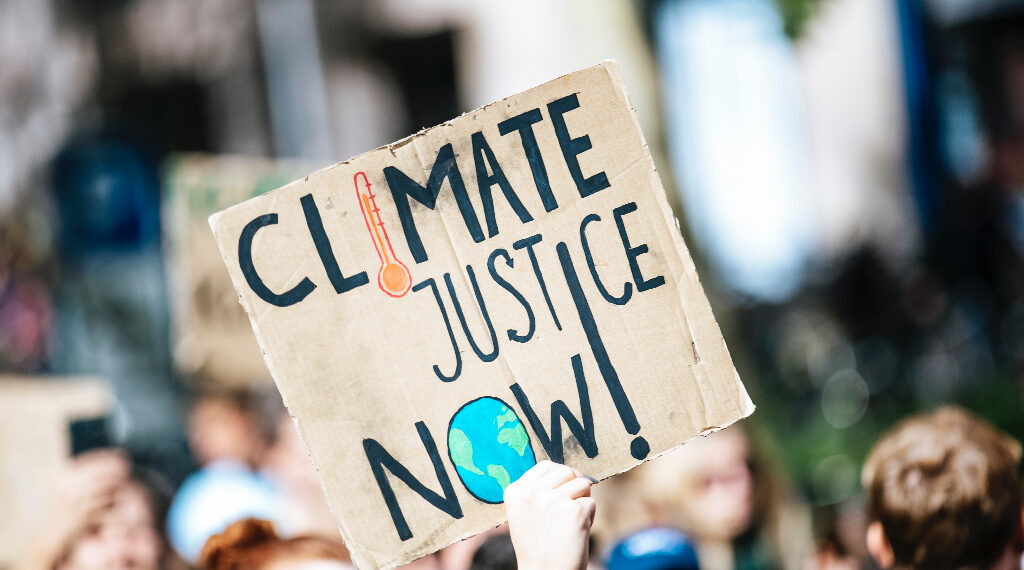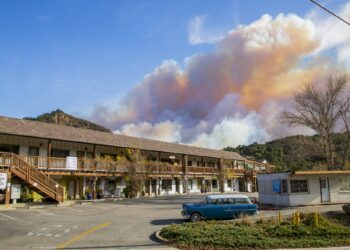During the presidential debate, Vice President Kamala Harris responded to a question about one of the most common ways the US extracts fossil fuels, fracking, by announcing: “I will not ban fracking… in fact, I was the tie-breaking vote on the Inflation Reduction Act, which opened new leases for fracking. My position is that we have got to invest in diverse sources of energy so we reduce our reliance on foreign oil.”
This statement is a flip-flop from her previous position and it doubles down on the Biden administration’s insistence that the US can both continue extracting fossil fuels and transition to clean energy. While the message that we can do both might win the White House, it is guaranteed to lead to massive losses for the planet.
Vice President Harris has the opportunity to be the leader that the world needs right now and not the flip-flopper that so many special interest groups are pushing her to be. The changemaker that the US needs requires that she listen more to those who are experiencing the climate crisis firsthand and less to the fossil fuel industry and business associations that benefit from it — a mainstay of American politics today.
Calamitous Trend
Numerous studies have documented the need to achieve substantial emissions reductions this decade to avoid planetary instability that could lead to systems collapse. However, the US is one of many countries that are not meeting the targets set in the Paris Agreement.
The Harris-Walz campaign must adopt a climate platform that follows the science and that cuts greenhouse gas emissions drastically by 2030. We are currently experiencing a global surge in oil and gas exploration that is being driven by the United States along with other wealthy, western countries.
This calamitous trend goes against the warnings of both the International Energy Agency and the United Nations Secretary-General, who have stressed that no fossil fuel expansion is compatible with society having a fighting chance of sustaining life on a safe, stable planet.
Calls to end fossil fuels are not new. In the past 15 years, Indigenous-led fights to cancel projects like the Keystone XL, Dakota Access, and Line 3 pipelines have featured mass protest and nonviolent civil disobedience directly at sites of construction, as well as against the government leaders and financiers backing them.
Activism
A year ago in September, 75,000 people marched in New York City at the largest demonstration in US history focused specifically on ending our dependence on fossil fuels.
This summer, the activism has continued. Thousands of people participated in the Summer of Heat on Wall Street, a summer-long campaign of nonviolent civil disobedience against fossil fuel financiers.
Since June, weekly protests shut down Citigroup’s headquarters; sit-ins disrupted business at the biggest insurance companies backing US expansion of liquified natural gas and other fossil fuel projects; and Wall Street executives’ public appearances were interrupted by the protestors.
As a growing percentage of the population experiences the effects of our warming world in the form of extreme heat, drought, wildfires, climate-exacerbated storms, and fossil fuel-driven pollution, more and more people will be joining the protests in the streets. These citizens are looking for true climate leadership.
Before joining the Biden administration, Harris showed a willingness to fight back against fossil fuels. Her platform during the Democratic primaries in 2019 included a ban on fracking, and she supported a Green New Deal as a senator.
In recent weeks, though, the Vice President has been increasingly ambiguous about her energy policy. There is growing pressure to embrace fossil fuel expansion to win the White House.
As the election looms, we encourage the Vice President to be the climate leader we need. To be a true climate leader – the kind that can put the US on a path to climate stability and prosperity, and to save the world from what the science says is the apocalyptic road ahead – she must be courageous and bold.
Disclaimer: The views and opinions expressed here are those of the author and do not necessarily reflect the editorial position of The Globe Post.























